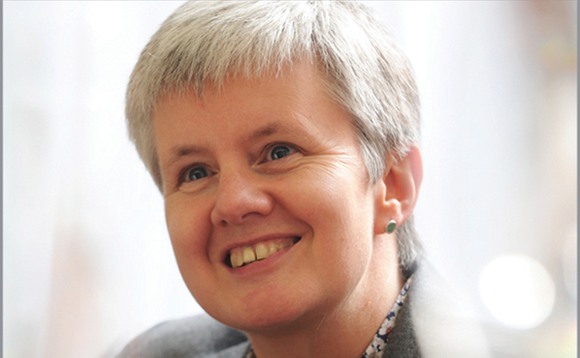Prime Minister Shinzo Abe is now likely to serve a third three-year term and become Japan’s longest-serving premier after his ruling coalition won a resounding victory in Sunday’s snap election. The big win for his bloc suggests stronger momentum for the Abenomics “three-arrow” strategy of economic revival − monetary easing, flexible fiscal policy and structural reform.
The third arrow covering corporate reform has already had encouraging results, Ruth Nash, senior fund manager at J O Hambro Capital Management Group, told FSA.
Cross-shareholding, which had always been a prominent feature of Japanese companies, has broken down. The cross-shareholding ratio – the percentage of shares in companies held by other listed companies – is now below 15%, data from Nomura shows.
“Whereas shares used to be owned by the cozy relationship partners [other Japanese companies], now shares are owned by pension funds, foreigners and private individuals, and they all care about the return they get on their investments,” said Nash, who co-manages the JOHCM Japan Dividend Growth Fund with Scott McGlashan.
As the holdings of relationship partners decreased, Japanese companies that had cheap valuations but strong balance sheets became concerned about being taken over. They took steps to boost their prices and investors loyalty by raising dividends, and buying back shares, she said.
Nash’s fund targets the rise of Japan’s dividend culture. The managers invest in a selection – up to 40 names – of the top 200 stocks in the Topix index, she explained. The companies are initially screened for high dividend yield or high dividend growth and the fundamentals are analysed by both managers. The firm believes the two-person team is self-sufficient and they do not rely on additional analysts.
Checking governance
The team is based in London, which Nash, paradoxically, considers an advantage in obtaining access to top leadership of Japanese companies.
“If I go to Japan to visit a company, I’ll meet somebody from the investor relations department and the accounting department,” she said. “When the company travels to London, it would be the president and we get a one-on-one meeting with him.”
Regular meetings with companies are the key to developing confidence in the company’s governance.
“It is quite difficult to evaluate governance just looking at specific metrics, such as the number of independent board members,” Nash said. “Enron and Toshiba had a lot of independent people on their boards.”
Out of each one-hour meeting with company’s management, Nash and McGlashan say they spend 15 minutes discussing issues of governance.
“Years ago, a company’s mid-term plan would just be ‘we want to have this amount of sales and we want our marketshare to be that’,” Nash said. “Now they talk in terms of return-on-equity of, say, 9% or 10%. We then talk about how they are going to get that 9% or 10%, what does it imply in terms of the balance sheet?
“The biggest issue of Japanese companies is that they still feel they need to hold on to cash,” Nash said. “They say ‘we had a terrible time during the global financial crisis, what if that happens again?’”. After years of a deflationary environment, management of many companies still needs to be persuaded that having no debt on the balance sheet is not a virtue.
For cultural reasons, a personal approach to influencing companies is better than the tactics of activist investors, Nash argues.
“A few years ago, there were foreign activists making a lot of fuss and going nowhere,” she said. “We don’t stand up and wave and make a big fuss, but we do talk to companies we own. In Japan that is a better way to get things done.
“If you ask companies ‘what are you going to do about all this cash?’, they just withdraw,” she said. “But if you sit down and say ‘you have a very strong balance sheet, do you have plans for M&A or are you going to be investing in new technologies?’ then they are more willing to open up.”
The other issue is that since the Corporate Governance Code, introduced in 2015, stipulated two independent directors on a company board, there was a scramble to fill the roles.
“Initially companies brought in anyone they could find − accountants, lawyers, people who didn’t have good business experience,” Nash said. “Now we are starting to see them being replaced by independent directors who actually bring something to the business.”

















